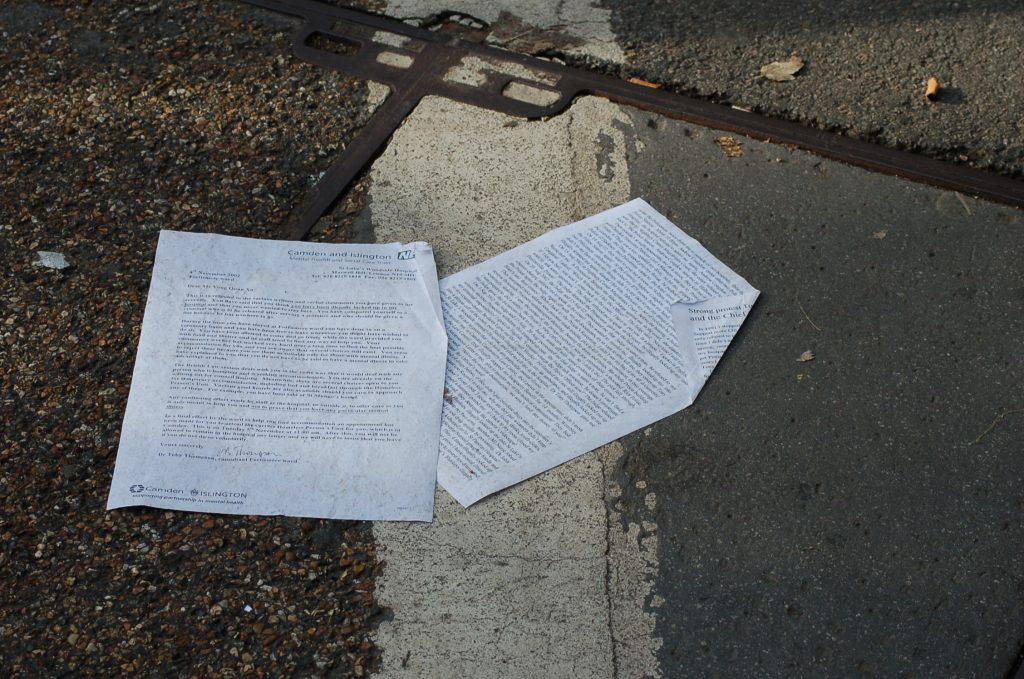 Louisiana is an “at-will” state when it comes to employment meaning when the employer and employee have not agreed to a limited term of employment, either the employee or the employer can break the relationship at any time without a reason. Term employment involves a stronger and a more defined agreement through a contract that is usually written, but that can also be established orally. An important part of such a contract defines the length of the employment – it can be, for example, for a given number of weeks, months, or years. In such employment, there must be a good reason for either side to terminate the relationship. Since there is a contract in this employment type, there are generally consequences for ending the relationship without a good reason.
Louisiana is an “at-will” state when it comes to employment meaning when the employer and employee have not agreed to a limited term of employment, either the employee or the employer can break the relationship at any time without a reason. Term employment involves a stronger and a more defined agreement through a contract that is usually written, but that can also be established orally. An important part of such a contract defines the length of the employment – it can be, for example, for a given number of weeks, months, or years. In such employment, there must be a good reason for either side to terminate the relationship. Since there is a contract in this employment type, there are generally consequences for ending the relationship without a good reason.
Many disputes involving employment issues reach the courts because of the lack of an agreement or, as here, there is no meeting of the minds as to the terms of employment. The defendant, Willwoods Community, a precept of the Roman Catholic Church on Howard Avenue in New Orleans (“Willwoods”) hired the plaintiff Michael Read (“Read”) as its Executive Director in mid 2009. About a year later in 2010, Willwoods decided to terminate the relationship and let Mr. Read go, when it determined that there was an issue with Mr. Read’s employment.
Read filed a lawsuit against Willwoods alleging that he had an employment contract with Willwoods for a term of five years and Willwoods’ termination of him violated this contract. Read argued there had been a term of employment promised to him and he had resigned a lucrative and established position at Capital One because of this. He argued that he only did so based on his belief that he was going to have a five year commitment at Willwoods. Since there was a contract, he argued, Willwoods’ dismissal of him without cause meant he was entitled to the remaining pay and benefits as if he had finished out the five year term.
 Louisiana Personal Injury Lawyer Blog
Louisiana Personal Injury Lawyer Blog


 Litigation is very complicated, particularly amongst the weeds of appeals and motions. This is illustrated very well in a case out of the Louisiana state Fifth Circuit Court of Appeal. One of the most important things it teaches is that it is invaluable to have a knowledgeable attorney who is familiar with summary judgments and appeals so the correct motions and pleadings can be filed on behalf of the client.
Litigation is very complicated, particularly amongst the weeds of appeals and motions. This is illustrated very well in a case out of the Louisiana state Fifth Circuit Court of Appeal. One of the most important things it teaches is that it is invaluable to have a knowledgeable attorney who is familiar with summary judgments and appeals so the correct motions and pleadings can be filed on behalf of the client.  When bringing a case for damages for wrongful termination due to age discrimination, a former employee must demonstrate that despite their age (or other considerations), they are capable of performing the duties associated with the position from which they had been fired. Failure to do so may result in a dismissal of the lawsuit.
When bringing a case for damages for wrongful termination due to age discrimination, a former employee must demonstrate that despite their age (or other considerations), they are capable of performing the duties associated with the position from which they had been fired. Failure to do so may result in a dismissal of the lawsuit. Lawyers owe a fiduciary duty to their clients, corporate directors owe a fiduciary duty to the corporation’s shareholders, and trustees owe a fiduciary duty to the beneficiaries of a trust. So, what is a fiduciary duty? Simply put, it’s a duty of the “fiduciary” (i.e., lawyers, corporate directors, trustees, etc.) to act solely in the interest of the person to whom the duty is owed, and the law does not tolerate breaches of that duty (whether by acts of self-dealing, incompetence, etc.). If you find yourself in a situation where you believe someone has breached their fiduciary duty to you, you may be entitled to judicial relief for the harm you suffered because of that breach of duty.
Lawyers owe a fiduciary duty to their clients, corporate directors owe a fiduciary duty to the corporation’s shareholders, and trustees owe a fiduciary duty to the beneficiaries of a trust. So, what is a fiduciary duty? Simply put, it’s a duty of the “fiduciary” (i.e., lawyers, corporate directors, trustees, etc.) to act solely in the interest of the person to whom the duty is owed, and the law does not tolerate breaches of that duty (whether by acts of self-dealing, incompetence, etc.). If you find yourself in a situation where you believe someone has breached their fiduciary duty to you, you may be entitled to judicial relief for the harm you suffered because of that breach of duty.  If you believe you have been misrepresented by an attorney, or that your legal counsel in any way acted wrongfully or neglected your legal needs, you may have a cause of action for legal malpractice. However, the time limit for when you may bring such an action to court is relatively short, and very strictly enforced, so it is important to retain new counsel as soon as the legal malpractice occurs or as soon as you first learn about it, so that you do not miss your window of opportunity to bring a malpractice claim. The following case demonstrates the problems that can arise when you wait too long to bring a legal malpractice claim before the court.
If you believe you have been misrepresented by an attorney, or that your legal counsel in any way acted wrongfully or neglected your legal needs, you may have a cause of action for legal malpractice. However, the time limit for when you may bring such an action to court is relatively short, and very strictly enforced, so it is important to retain new counsel as soon as the legal malpractice occurs or as soon as you first learn about it, so that you do not miss your window of opportunity to bring a malpractice claim. The following case demonstrates the problems that can arise when you wait too long to bring a legal malpractice claim before the court.  Be careful what your getting into when you attend a timeshare presentation. While you may get a “free” vacation for sitting through the sales pitch, you could be getting into more trouble then it is worth. This was the case for over one hundred purchasers of timeshares who bought from Festiva Resorts, LLC and Festiva Development Group, LLC. Festiva held sales presentations in New Orleans, Louisiana, for points based timeshares memberships.
Be careful what your getting into when you attend a timeshare presentation. While you may get a “free” vacation for sitting through the sales pitch, you could be getting into more trouble then it is worth. This was the case for over one hundred purchasers of timeshares who bought from Festiva Resorts, LLC and Festiva Development Group, LLC. Festiva held sales presentations in New Orleans, Louisiana, for points based timeshares memberships. Insurance policies can still be intact even if the insured fails to pay if the insurance company fails to follow the proper protocol in informing the insured that he or she no longer has coverage. State Farm found themselves liable for coverage in just a situation.
Insurance policies can still be intact even if the insured fails to pay if the insurance company fails to follow the proper protocol in informing the insured that he or she no longer has coverage. State Farm found themselves liable for coverage in just a situation.  Our court system includes rules that aim to promote court efficiency. Some of the rules may sound intimidating, but having a good attorney, one who is able to build a strong strategy and with strong knowledge of the rules, makes the necessary difference. One such rule is called res judicata – Latin for “a matter judged.” Unfortunately, Mr. Springer, a resident of Nannie O’Neal Senior Apartments on Oneal Street in DeRidder, Louisiana recently lost his case because of failing to understand how this rule applied.
Our court system includes rules that aim to promote court efficiency. Some of the rules may sound intimidating, but having a good attorney, one who is able to build a strong strategy and with strong knowledge of the rules, makes the necessary difference. One such rule is called res judicata – Latin for “a matter judged.” Unfortunately, Mr. Springer, a resident of Nannie O’Neal Senior Apartments on Oneal Street in DeRidder, Louisiana recently lost his case because of failing to understand how this rule applied.
 It is, mildly stated, disappointing for a plaintiff when a court dismisses his or her case based on a technicality, particularly when the lawsuit is about medical malpractice. Unfortunately, even when a plaintiff has a good case, with all the necessary evidence to show that the defendant was wrong, the plaintiff can still lose the case if he or she does not diligently take the necessary steps to move the case forward. In Louisiana courts, the Code of Civil Procedure ensures a fair process for all parties. All civil cases must follow these rules as part of the process. Malpractice cases are no exception. In a recent case of the Louisiana Second Circuit Court of Appeal, the plaintiffs learned this the hard way.
It is, mildly stated, disappointing for a plaintiff when a court dismisses his or her case based on a technicality, particularly when the lawsuit is about medical malpractice. Unfortunately, even when a plaintiff has a good case, with all the necessary evidence to show that the defendant was wrong, the plaintiff can still lose the case if he or she does not diligently take the necessary steps to move the case forward. In Louisiana courts, the Code of Civil Procedure ensures a fair process for all parties. All civil cases must follow these rules as part of the process. Malpractice cases are no exception. In a recent case of the Louisiana Second Circuit Court of Appeal, the plaintiffs learned this the hard way.